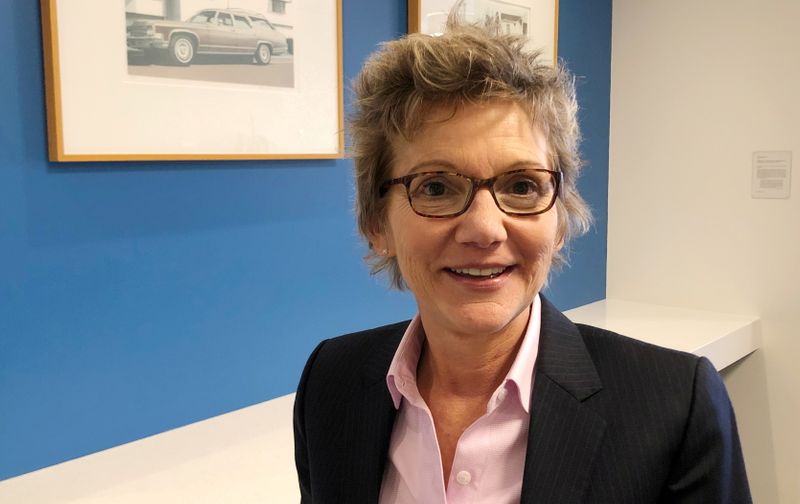(Reuters) -The U.S. job market will continue to feel the effects of COVID-19, but it is too soon to say it is "stalling," San Francisco Federal Reserve President Mary Daly said on Sunday.
"It's going to have these ups and downs, especially with the Delta variant," Daly said on the CBS weekend news program "Face the Nation" when asked about a second straight month of disappointing job growth in September.
"So I think it's too soon to say it's stalling, but certainly we're seeing the pain of COVID and the pain of the Delta variant impact the labor market," she said.
Daly's comments came after the Labor Department on Friday reported that just 194,000 new jobs were created last month, fewer than half the number expected by economists in a Reuters poll. While the unemployment rate dropped to an 18-month low of 4.8%, it was partly a factor of people leaving the U.S. workforce.
Coupled with an equally disappointing employment report card for August, the recent data has raised concerns that the U.S. economy will take longer than expected to recoup the remaining 5 million jobs lost to the coronovirus pandemic, and that factors like high inflation, souring consumer sentiment and the persistence of COVID-19 will sap growth.
Daly said she had always thought the Delta variant of the coronavirus would create headwinds for the economy, but she does not expect it to trigger a recession.
"I always expected Delta to take a toll, just not put us into another recession, and we're seeing that toll," she said. "We're seeing this disrupt families, disrupt schooling, disrupt people's ability to get to work and feel safe about it."
"Delta has taken a toll, but it hasn't yet derailed us," Daly said. "As goes COVID, so goes the economy."
Asked about inflation, Daly said the price pressures U.S. consumers are facing are "painful" but are directly related to COVID-19 and are not expected to persist. That echoes her previous and many other Fed officials' assessments that the current bout of high inflation is "transitory" even if it has extended further than most policymakers had initially expected.
"Everyone's feeling the rising prices for energy, food, basic services, and that's painful because we aren't used to seeing it," Daly said. "It's eye-popping in some categories."
"We have these really anxious-to-get-out-there-and-spend consumers hitting the wall of supply constraints, and of course the prices are going to rise," Daly said. "But I don't see this as a long-term phenomenon."
Daly and other Fed officials are engaged in discussion over when and how to start removing the extraordinary support they have provided for the economy during the pandemic. Even with Friday's soft payrolls report, Fed officials are still expected to press ahead with the first stage of that withdrawal as early as their next meeting in early November.
